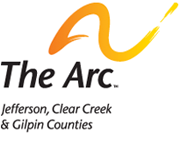Long Term Care Options
Please note the page/ website you’re currently using has replaced Jeffcotag.org as of August 14, 2020.
In this session we will discuss long-term care options for adults with disabilities and how they differ from community supports. Long-term care support and services help with the activities of daily life, such as bathing, cooking, medication management, working, and recreation. The systems you will need to access can be confusing and complex but we will try to give you a better understanding.
Long term care for adults with disabilities is funded with government benefits. These supports and services come with strict eligibility guidelines. You will hear terms like Home and Community Based Services Waivers, Medicaid, and Supplemental Security Income.
For people in this category, these benefits are their lifelines.
Entitlement vs. Eligibility
Public schools are required to provide school-aged children with a free education and support services. But it will be up to you to seek out and apply for services once your child becomes an adult and transitions into long term care or adult support. You will be responsible for providing the required documentation to meet the specific eligibility criteria for each of these services.
It is important to understand that the term “disability” has different definitions for each area of support and often there are waiting lists for services and possible fees.
Let’s explore what services are available from the government and discuss how young adults can gain access to them.
Social Security Income, or SSI, and Social Security Disability Income, or SSDI, are two disability programs that are handled by the Social Security Administration.
The Social Security Administration describes a disability as a condition that affects a person’s ability to work full time. This condition must have lasted, or be expected to last, a minimum of 12 months.
What is Social Security Income?
People who are eligible for Social Security Income receive monthly payments to use for living expenses, like food, rent and clothing.
SSI is a needs-based program for low-income people with disabilities. To show eligibility, assets should not exceed $2,000. It’s important to know that by age 18, your child is considered an adult, and therefore, the parents’ income and assets are not considered in this determination.
What is Social Security Disability Income?
SSDI is an entitlement that provides benefits to people with disabilities based on contributions paid into Social Security from previous employment. The contributions could have been paid by the person with a disability or by relatives. SSDI is available to people who are not able to work full time because of their disability.
It is possible to work while receiving SSI and SSDI. See the Employment Choices section of our Website for more information regarding these programs.
What are Community Center Boards?
Community Center Boards are local agencies contracted through the State Office for Developmental Disability Services. CCBs determine whether a person has a developmental disability and is eligible for CCB-funded services under Colorado’s definition. In Jefferson, Clear Creek, Gilpin, and Summit Counties the CCB is the Developmental Disabilities Resource Center, or DDRC.
To receive support from a CCB, individuals must meet the eligibility criteria for an intellectual or developmental disability under the state definition. Different assessments and medical information will be needed to determine eligibility. For example, your child will need to complete a full-scale IQ test as well as adaptive behavior assessments to determine whether they have an intellectual or developmental disability.
Please note that Colorado has a waiting list for people who qualify to receive services under the Medicaid waiver programs, so if you have not already done so, contact your local CCB to find out if your child is eligible for placement on the list. It is recommended to get on the list as early as age 14.
CCBs coordinate resources for people in Medicaid waiver programs both SLS and “Comp” and provide limited coordination services and resources for those who are on the waiting list. Make sure to ask your DDRC representative what might be available for your current situation.
What is Medicaid?
Medicaid is a program for individuals who cannot afford to pay for medical care. Medicaid is provided as a benefit to those who are eligible for SSI and SSDI.
Medicaid provides medical coverage, as well as funding for waiver services administered through Community Center Boards, or CCBs. In Jefferson County the CCB is the Developmental Disabilities Resource Center.
What are Medicaid Waivers?
Medicaid waivers provide on-going community based support and services that go beyond medical benefits.
There are many different Medicaid waivers available to people living in Colorado. The two most used by people with developmental disabilities are called Home Based Services and Community Based Services. You may also hear people refer them as HCBS waivers. They are administered by the Developmental Disabilities Resource Center.
One HCBS Medicaid waiver is called the Supported Living Services waiver. This waiver offers a variety support services for: assistive technology, behavior services, community connections, supported employment, homemaker services, respite, mentorship and more. This waiver does not offer 24/7 support.
The second HCBS waiver is called the Developmental Disability waiver, often referred to as “Comp.” This waiver is intended to meet all the individual’s needs 24/7.
Services include, residential care options like a group homes, host homes, or supervised apartments. Individuals may also receive residential services in their homes through a traditional provider or a family member. If the caregiver is a family member he or she must become an employee of an approved service agency.
There are other available Medicaid waivers, such as supported employment, behavior services, day programs or community connections.
It’s important to know that the Medicaid waivers have additional eligibility criteria beyond developmental disability and a level of care determination that must be met.
What is Guardianship?
Parents are considered natural guardians of their children until their 18th birthday. At age 18, all individuals are assumed to be legally competent adults able to manage their own finances, legal affairs, and medical treatment.
Guardianship provides protection and support to vulnerable individuals who require some level of assistance in managing their personal affairs. Guardianship is a legal process and cannot be granted or specified in a will. You must petition the court to appoint a guardian. You must then satisfy the burden of proof that such a guardianship is necessary and in the best interest of the person with a disability.
The Developmental Disabilities Resource Center and The Arc offer free trainings about guardianship.
Handouts and Additional Resources:
Local Resources
-
303-233-3363/ask for intake
-
1-800-772-1213
Return to main page
This content was created by the Jeffco Transition Alliance Group (or TAG). TAG was a collaboration among The Arc – Jefferson, Clear Creek & Gilpin Counties, the Developmental Disabilities Resource Center (DDRC) and Jeffco Public Schools. In partnership and with grant funding from DDRC, a series of family-focused trainings were delivered in past school years to equip students and their families in navigating a successful transition in their Life After High School. Due to family and community feedback the information was converted to self-guided learning.

